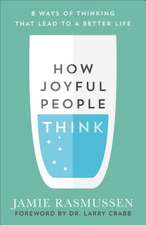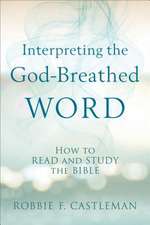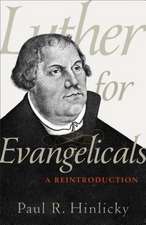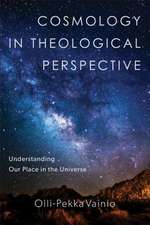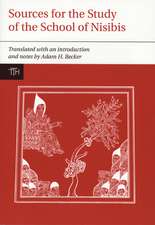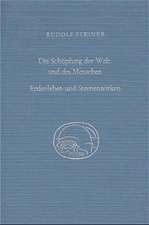Intuition
Autor Rudolf Steiner Traducere de J. Collisen Limba Engleză Paperback – 24 apr 2019
In his later works, Steiner spoke of Intuition as a form of suprasensory knowledge that is able to provide direct insight into ordinary, practical life as exemplified in his commentaries on geometry, architecture, education, medicine, eurythmy, painting, and the social organization.
The concept of Intuition is fundamental to Rudolf Steiner's spiritual philosophy. It denotes a clear, pure mode of comprehension akin to a mathematical concept. We encounter this in Steiner's earliest writings on Goethe, in the development of his philosophical ideas, and in his numerous lectures and addresses. Ably compiled and introduced by Edward de Boer, this volume clarifies a concept that evolved in Steiner's thinking. By following the idea of Intuition in its gradual transformation and amplification throughout Steiner's life of writing and lecturing, this book offers not only inspiring paths to spiritual knowledge, but also insights into how Anthroposophy developed.
Chapters include
- The Perceptive Power of Judgment
- Goethe's Intuition
- Moral Intuition: Experiencing Thinking
- The Human Being: Intuition as a Bridge to the Spirit
- The Schooling Path: Spiritual Development and the Power of Intuition
- Intuition Exercises
- Three Stages of Consciousness: Intuition in Relation to Imagination and Inspiration
- Knowledge of Destiny: Intuition and Repeated Earth Lives
Intuition in Practice: Examples from Various Specialist FieldsIn his later works, Steiner spoke of Intuition as a form of suprasensory knowledge that is able to provide direct insight into ordinary, practical life as exemplified in his commentaries on geometry, architecture, education, medicine, eurythmy, painting, and the social organization. The concept of Intuition is fundamental to Rudolf Steiner's spiritual philosophy. It denotes a clear, pure mode of comprehension akin to a mathematical concept. We encounter this in Steiner's earliest writings on Goethe, in the development of his philosophical ideas, and in his numerous lectures and addresses. Ably compiled and introduced by Edward de Boer, this volume clarifies a concept that evolved in Steiner's thinking. By following the idea of Intuition in its gradual transformation and amplification throughout Steiner's life of writing and lecturing, this book offers not only inspiring paths to spiritual knowledge, but also insights into how Anthroposophy developed.
Chapters include:
- The Perceptive Power of Judgment
- Goethe's Intuition
- Moral Intuition: Experiencing Thinking
- The Human Being: Intuition as a Bridge to the Spirit
- The Schooling Path: Spiritual Development and the Power of Intuition
- Intuition Exercises
- Three Stages of Consciousness: Intuition in Relation to Imagination and Inspiration
- Knowledge of Destiny: Intuition and Repeated Earth Lives
Intuition in Practice: Examples from Various Specialist Fields
Preț: 87.54 lei
Nou
Puncte Express: 131
Preț estimativ în valută:
16.76€ • 18.21$ • 14.08£
16.76€ • 18.21$ • 14.08£
Carte disponibilă
Livrare economică 01-15 aprilie
Livrare express 15-21 martie pentru 18.40 lei
Preluare comenzi: 021 569.72.76
Specificații
ISBN-13: 9781855845572
ISBN-10: 1855845571
Pagini: 146
Dimensiuni: 139 x 217 x 12 mm
Greutate: 0.2 kg
Editura: Rudolf Steiner Press
ISBN-10: 1855845571
Pagini: 146
Dimensiuni: 139 x 217 x 12 mm
Greutate: 0.2 kg
Editura: Rudolf Steiner Press
Notă biografică
Rudolf Steiner (1861-1925) was born in the small village of Kraljevec, Austro-Hungarian Empire (now in Croatia), where he grew up. As a young man, he lived in Weimar and Berlin, where he became a well-published scientific, literary, and philosophical scholar, known especially for his work with Goethe's scientific writings. At the beginning of the twentieth century, he began to develop his early philosophical principles into an approach to systematic research into psychological and spiritual phenomena. Formally beginning his spiritual teaching career under the auspices of the Theosophical Society, Steiner came to use the term Anthroposophy (and spiritual science) for his philosophy, spiritual research, and findings. The influence of Steiner's multifaceted genius has led to innovative and holistic approaches in medicine, various therapies, philosophy, religious renewal, Waldorf education, education for special needs, threefold economics, biodynamic agriculture, Goethean science, architecture, and the arts of drama, speech, and eurythmy. In 1924, Rudolf Steiner founded the General Anthroposophical Society, which today has branches throughout the world. He died in Dornach, Switzerland.
Descriere
The concept of Intuition is fundamental to Rudolf Steiner's spiritual philosophy. It denotes a clear, pure mode of comprehension akin to a mathematical concept. We meet it in his earliest writings on Goethe, in the development of his philosophical ideas and in his many lectures and addresses.



